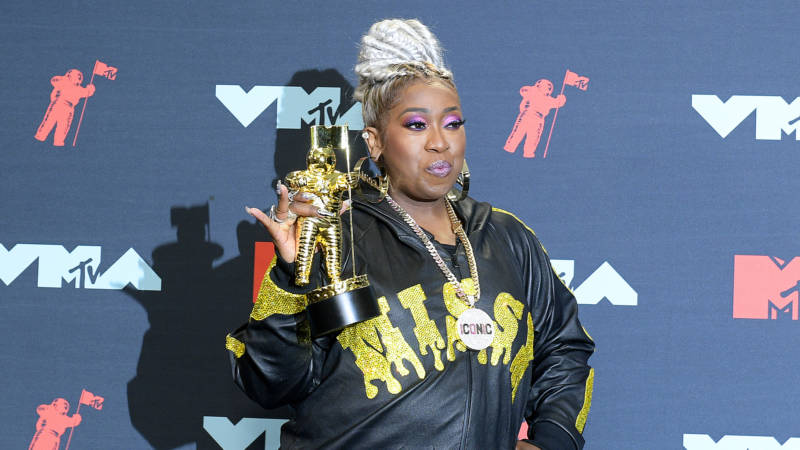For over two decades, Missy Elliott has created with her eyes and ears towards the future.
She was body positive before it was a marketing gimmick (“I got a cute face / chubby waist“). She embraced Afrofuturism before it became part of the pop culture lexicon. She went overseas to Korea to work with G-Dragon before K-Pop charted on Billboard. And, from 1997’s “The Rain (Supa Dupa Fly)” to 2019’s “Throw It Back,” she produced, rapped, danced and sang at the highest level, and used her talents to make listeners feel like their best, most liberated selves.
Justin Timberlake was right, speaking in the testimonials that played on MTV before Elliott took the VMA stage: her reception of the Video Vanguard Award at tonight’s ceremony was an incredibly belated accolade. And the technicolor celebration of self-love, blackness, immigrant identity, queerness and fatness on display throughout the awards proved that Elliott’s pop music philosophy—the rhythm’s potential to free us from shame so we can all celebrate our bodies, identities and selves—has come to fruition and then some in 2019.
On stage at the VMAs, Missy Elliott took fans through 20 years of career highlights in a dazzling seven-minute show filled with airtight choreography, CGI visuals and homages to her best-known music videos. She and her dancers revisited era-defining tracks like “Lose Control,” “Get Your Freak On” and “Work It,” which included a show-stopping dance number from Alyson Stoner, the little girl in the video now all grown up.
Elliott’s iconic inflatable suit made an appearance during “The Rain (Supa Dupa Fly),” the outfit in which she defiantly, exaggeratedly took up space during peak heroin chic in the late ’90s. We saw the cornfields from the “Pass That Dutch” video transform from historical sites of exploitation into a party for black ingenuity. Set designs, costume changes and complex group choreography flowed from one track into the next so quickly and seamlessly that it was easy to forget to breathe.


